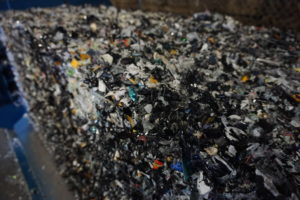In 2015, the State of Massachusetts generated 5.5 million tons of trash. For many years, the majority of this waste was disposed of in landfills. Whether this is the “preferred” method, from an environmental standpoint, is a topic for discussion – however it is typically the most cost effective.
This is about to change. Many of the landfills located within the State, which total 9, are scheduled to close by 2021. Some may attempt expansion and re-permitting – however, this is a long and costly process with no guarantees.
What are the options once these landfills do close, and where will the waste generated within our State go?
Combustors, or “waste to energy” facilities, are now operating in Agawam, Haverhill, Millbury, North Andover, Rochester, and Saugus. These facilities accept solid waste and burn the material, generating power in the process. Permitting and operating these facilities is costly, as they are required to abide by increasingly stringent operating guidelines to monitor and control emissions. These facilities have a total capacity of 3.5 million tons per year.
The State master plan has a goal of a 30% reduction of overall solid waste generated by 2021 from 2008 levels. This plan has a target of reducing the total solid waste generated by 2 million tons over 12 years.
How does the State propose this waste reduction?
Waste bans – which prohibit disposal of certain recyclable material, have been put in place to assist with reducing this total. Materials such as paper, cardboard, tires, metals, plastics, electronic scrap, and more are prohibited from disposal. Both landfills and burn plants are periodically staffed with DEP personnel to monitor the types of waste being disposed of. The offending companies or haulers disposing of recyclable material are subject to warnings and fines.
Not all states have the future disposal capacity issues that Massachusetts is projecting. Much of the waste generated in the state is disposed of in other locations, such as New York or even Ohio. It can actually be more cost effective to ship solid waste to these locations rather than dispose of it locally, as these alternate locations can and do have lower “tipping” fees for disposal, even after factoring in the added transportation cost.
Obviously recovering and recycling commodities prior to disposal is one of the most efficient ways to address the vast amount of solid waste generated. Even with strict recycling guidelines in place, the future disposal costs in Massachusetts are sure to increase as local disposal options disappear.
If your business is looking for alternative, cost-effective ways to properly dispose of solid waste, please contact us.

